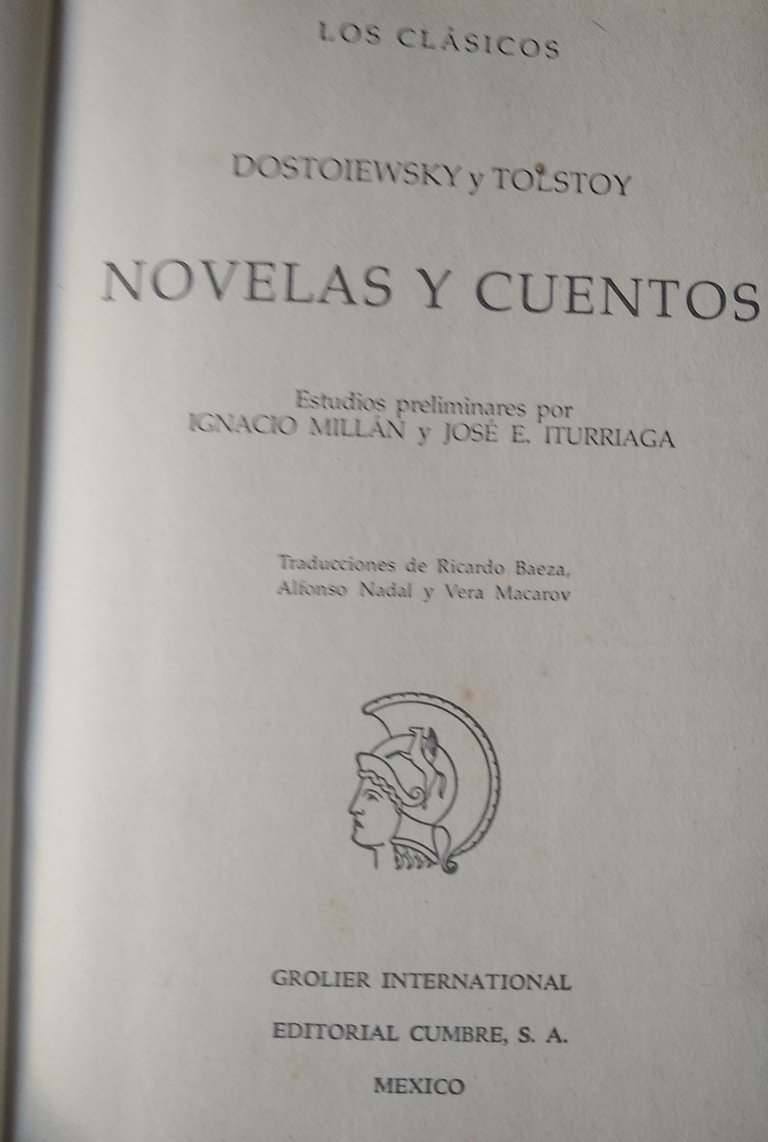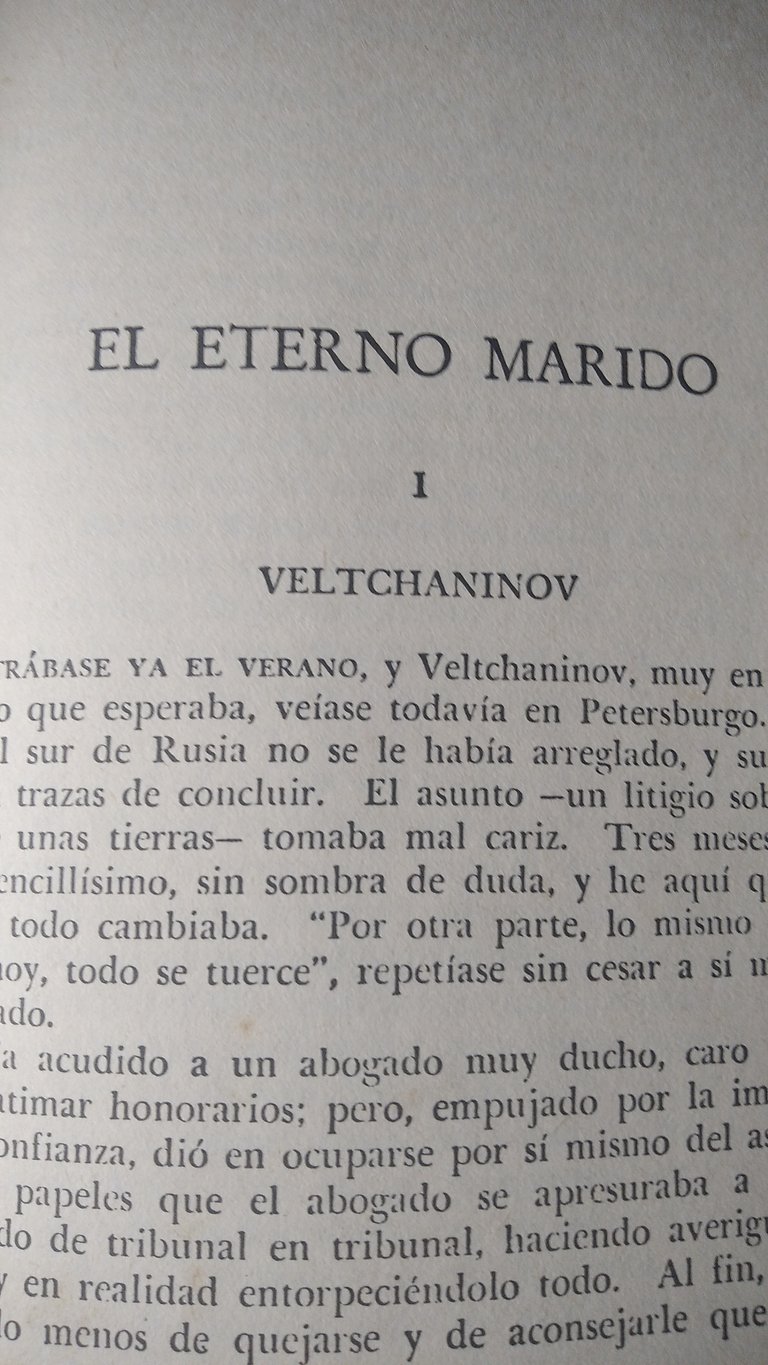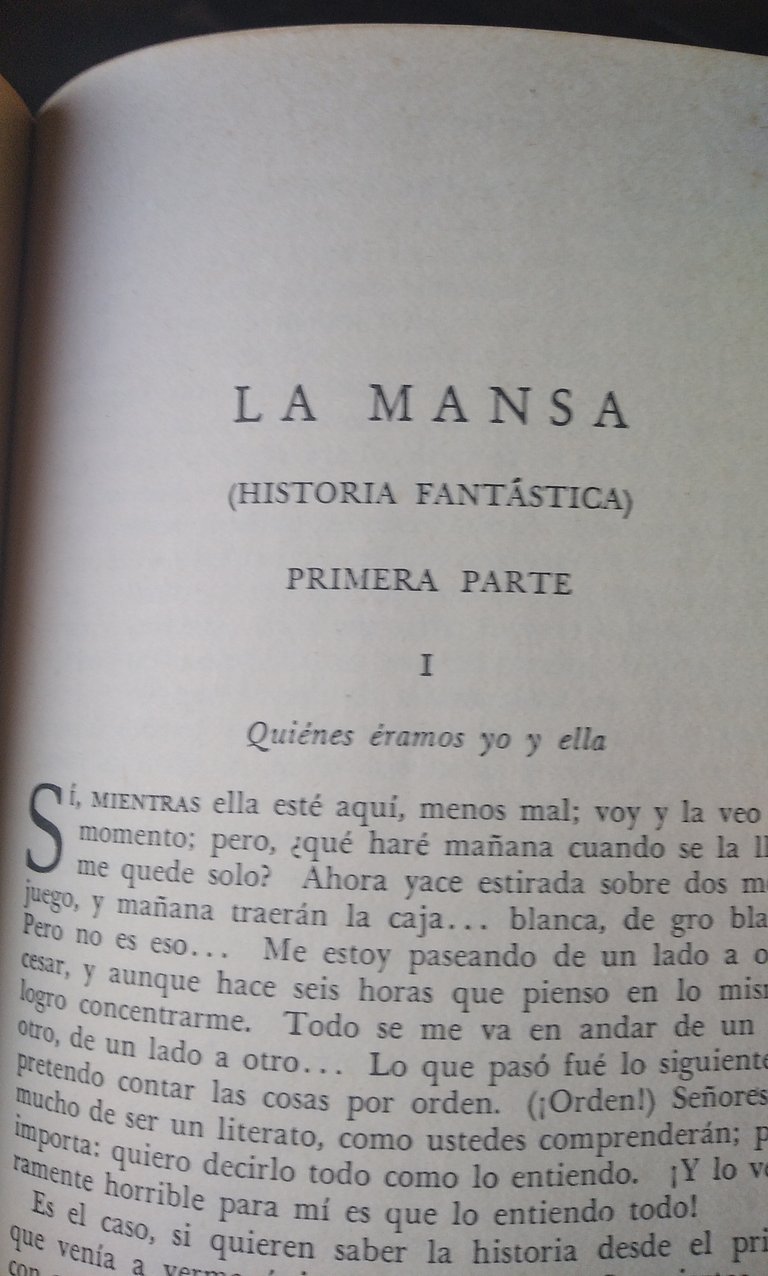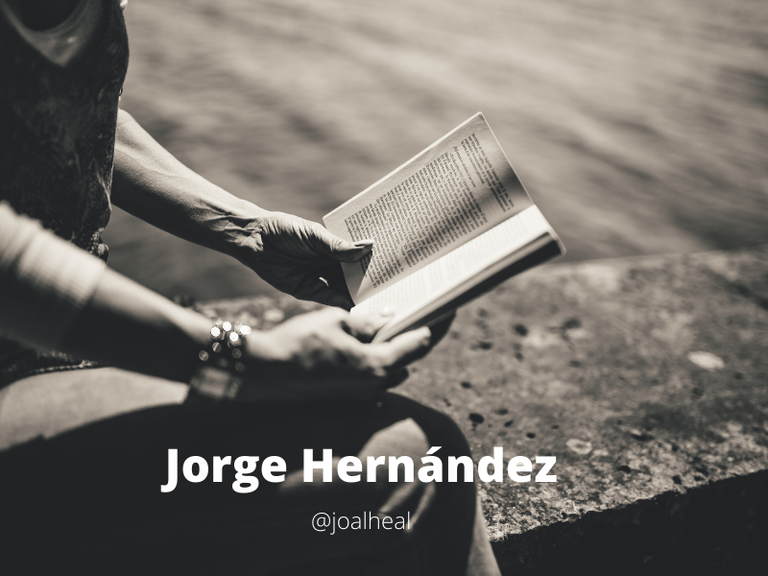
Rediscovering Dostoevsky
A couple of decades ago, I had already met this remarkable Russian author, considered one of the most important in the literature of that part of the world. I had learned between frugal readings of the most relevant aspects of his biography, and of course I had read a couple of his works, "The Eternal Husband" and "The Meek.". Now that I have read them again, I cannot say reread, because before my eyes, already worn out, those lines appeared as if for the first time with all the force of Russian prose. I recognize now with blushes that I had not understood or at least sized up the smallest fraction of these literary pieces. I end up thinking that it is the lens of the lived experience that now allows me to delve into the symbolism that the author offers in his narrative argument and in his way of structuring the novelistic elements.

That's right, these are a pair of short novels, definitely late works, seasoned with all the rigor of Theodor Mikhailovich Dostoevsky's experience. In them, the author leaves captured, the author, all the philosophical baggage acquired in his hardest times, from his confinement and then his exile; however, all this empties it, Theodore, in a well perhaps more frightening and complex as they are "marital relations." In both works, the Marriage serves as a context for constructing the narrative of the story arc.


In Dostoiewky the physical environment is barely described enough to give us some details of life under Tsarist rule. He pays special attention to some fashions and customs, such as speaking, dressing, or eating in the Russian way in traditional St. Petersburg; this is what we could call the primary or superficial environment. Underneath, or perhaps interwoven, the psychological environment of the protagonist is built, and we will end up remembering more clearly his way of thinking and reacting to circumstances than those physical traits described by the author.
The literary resources that Theodor uses for such a wonder are, among others, the voice that narrates (the narrator), almost never omniscient, often doubting and transmitting doubts to the reader; he is a sort of witness-protagonist narrator, and it is through his perspective that we are configuring all the action; as readers, we are impregnated with his prejudices, fears, hesitations and daring. The other fundamental resource is the use of dialogue, either between characters whose dense "conversations" shape the course of events or the understanding of what has already happened; and, to a greater extent, the inner dialogue of the witness -protagonist, articulated by that inner voice that is presented to us very clearly speaking to us of the character's intimate thoughts, giving us the psychological profile of the character. Certainly, I highlight these two resources, which in my opinion are the most important; however, the work acquires the rank of genius because the other elements of the novel are treated with excellent mastery, making the whole a remarkable whole. It is opportune to say that the narrative strength of the Russian does not lie in the aesthetics of his prose; it is not the flowery language that we can expect from him. His strength lies in his ability to present us with very human characters who suffer, feel, love and hate with an intensity that transcends the written lines.
Theodor does not skimp on autobiographical elements or winks when seasoning his works, which delights those familiar with his personal life, even at the cost of self-ridicule. As an example, we can mention the use of his frustrated military career: in "The Eternal Husband" the Protagonist Veltchaninov is discarded "the same as a pair of old shoes" by his mistress Natalia Vasilievna who exchanges him for an "officer" just out of the academy, and already, almost at the end of the play shows us an impertinent drunkard who ends up being a military officer; in "The Meek" the protagonist himself has a shameful past in the army which causes him deep bitterness. As for marital relations, the author does not present them in a crude way, as a battlefield where armies of one confront each other. Husband and wife. There is nothing submissive about these women (the title of the second tends to mislead), and on the contrary, they do whatever they want without detriment to appearances and social conventions.
As a corollary, I don't intend to deliver a scholarly or brainy analysis of this author and this pair of his works; I only intend to share with you my impression of this encounter with Dostoevsky that definitely left me with a strong taste in my mouth for an exquisite literary work. If you have not read it, I highly recommend it, and if, like me, you read it in your tender youth, then venture into your encounter with Dostoevsky.
Thanks for reading¡
ESPAÑOL

Reencontrando a Dostoiewsky
Hace ya un par de décadas había conocido a este notable autor ruso, considerado uno de los más importantes de la literatura de esa parte del mundo, me había enterado entre lecturas frugales de los aspectos más relevantes de su biografía y por supuesto había leído un par de sus obras; “El eterno Marido” y “La mansa”. Ahora las leo de nuevo, no puedo decir releer; porque ante mis ojos, ya desgastados, se aparecían aquellas líneas como por primera vez con toda la fuerza de la prosa rusa. Reconozco ahora con rubor que no había entendido o al menos dimensionado la más pequeña fracción de estas piezas literarias. Termino pensando que es el lente de la experiencia de lo vivido, lo que ahora me permite ahondar en la simbología que el autor ofrece en su argumento narrativo y en su forma de estructurar los elementos novelescos.

Así es, se trata de un par de novelas cortas, definitivamente obras tardías, sazonadas con todo el rigor de la experiencia de Teodoro Mikhailovich Dostoiewsky. En ellas deja plasmadas, el autor, todo el bagaje filosófico adquirido en sus tiempos más duros, desde su encierro y luego su exilio; no obstante, todo esto lo vacía, Teodoro, en un pozo acaso más temible y complejo como lo son “las relaciones maritales”. En ambas obras el Matrimonio sirve de contexto para construir la narración del arco argumental.


En Dostoiewky el ambiente físico es apenas descrito suficientemente, tanto como para enterarnos de algunos detalles de la vida bajo la égida zarina, pone especial atención en algunas modas y costumbres, al hablar, vestir o comer a la usanza rusa en el tradicional San Petersburgo, es este lo que podríamos llamar el ambiente primario o superficial. Debajo o tal vez entretejido, se va construyendo el ambiente psicológico del protagonista, al cual terminaremos recordando más nítidamente por su forma de pensar y reaccionar ante las circunstancias que por aquellos rasgos físicos descritos por el autor.
Los recursos literarios a los que echa mano Teodoro para tal portento son, entre otros, la voz que narra (el narrador) casi nunca omnisciente, a menudo dudando y trasmitiendo las dudas al lector; es una suerte narrador testigo-protagonista y es a través de su perspectiva que nos vamos configurando toda la acción, como lectores nos vamos impregnando de sus prejuicios, temores, vacilaciones y osadías. El otro recurso fundamental es el uso del diálogo, bien sea entre personajes cuyas densas “conversaciones” van modelando el curso de los acontecimientos o el entendimiento de lo ya ocurrido; y, en mayor medida, el diálogo interior del testigo - protagonista, articulado por esa voz interna que se nos presenta muy clara hablándonos de los íntimos pensamientos del personaje dándonos el perfil psicológico del mismo. Ciertamente, destaco estos dos recursos, que en mi opinión son los más importantes; sin embargo, la obra adquiere rango de genialidad porque los demás elementos de la novela son tratados con excelsa maestría, haciendo del todo un conjunto notable. Resulta oportuno acuñar que la fuerza narrativa del ruso no estriba en lo estético de su prosa, no es el lenguaje florido lo que podemos esperar de él. Su fuerza radica en la capacidad de presentarnos personajes muy humanos que padecen, sienten, aman y odian con una intensidad que traspasa las líneas escritas.
No escatima Teodoro en elementos o guiños autobiográficos al sazonar sus obras, lo que hace las delicias de los conocedores de su vida personal, esto incluso a costa del ridículo propio; como ejemplo podemos asomar el uso de su frustrada carrera militar: en “El Eterno Marido” el Protagonista Veltchaninov es desechado “lo mismo que un par de zapatos viejos” por su amante Natalia Vasilievna quien lo cambia por un “oficialete” recién salido de la academia y ya casi al final de la obra nos muestra a un borracho impertinente que termina siendo un oficial militar; en “La mansa” el protagonista mismo tiene un pasado vergonzoso en el ejército que le causa profundas amarguras. En cuanto a las relaciones matrimoniales, no las presenta el autor de forma cruda, como un campo de batalla donde se enfrentan ejércitos de uno. Marido y mujer. Nada tienen estas mujeres de sumisas (el título de la segunda tiende a despistar) y, por el contrario, hacen cuánto quieren sin menoscabo de las apariencias y convenciones sociales.
Como corolario, no pretendo entregar un análisis erudito o sesudo de este autor y este par de sus obras, solo pretendo compartirles mi impresión de este reencuentro con Dostoiewsky que en definitiva me dejó un sabor fuerte en la boca de una exquisita obra literaria. Si no lo han leído, se los recomiendo ampliamente y si, como yo, lo leyeron en su tierna juventud, pues aventúrense en su reencuentro con Dostoiewsky.
¡Gracias por leer!
Original text by @joalheal for all purposes / own images captured with Redmi 8 / Endcard designed in Canvas.
Translated with DeepL free version.
Texto original de @joalheal para todos los efectos/ imagenes propias capturadas con Redmi 8/ Endcard diseñado en Canvas.
Traducido con DeepL free version.





